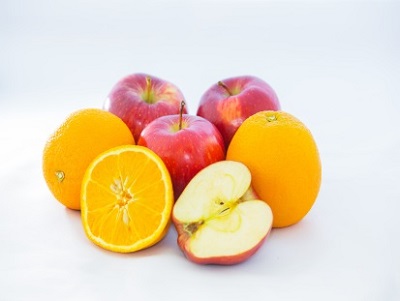Top Nutrition Tips to Cut Your Cancer Risk
March is National Nutrition Month, so let’s talk about some cancer-fighting benefits of making healthy food choices. What you eat and what you don’t eat has a powerful effect on your health. Maintaining a healthy weight and nourishing your body with certain foods is key to good health and to reducing your risk of cancer.
Although there’s no one diet program that is right for everyone, it’s important to have some sort of healthy-eating plan. So, put your best fork forward with these five cancer-fighting strategies.
1. Know your healthy weight & maintain it
People who are overweight or obese have a higher risk of many serious health conditions, including cancers. To control weight gain, it’s about knowing what weight is healthy for you and maintaining that weight. (No, a few pounds here or there shouldn’t lead to extreme dieting, but knowing yourself and your ideal body weight is key.)
Maintaining a healthy weight throughout life can lower your risk of breast, uterine, prostate, lung, colon, kidney, pancreatic, esophageal, multiple myeloma, gallbladder, gastric, ovarian and thyroid cancers.
2. Replace one processed item a day with real food
Processed foods aren’t just microwavable meals – the term ‘processed food’ applies to foods that have been altered from their natural state in some way (and it can be for a variety of reasons, including safety, aesthetic desirability and convenience). Ingredients such as salt, sugar and fat are often added to processed foods, which leads to the consumption of these additives at more than the recommended amount.
But a few simple swaps can make a big difference in how you look and feel – and can also help lower your risk of cancer.
* Grab an apple or an orange instead of cookies.
* Substitute cucumbers and baby carrots for crackers. (Dip them hummus for a tasty treat!)
* Replace soda with a glass of water or sparkling water. Water helps your body get rid of toxins that put you at risk for diseases like cancer.
(Bonus tip – the perimeter of the supermarket usually contains natural foods and the center aisles contain processed foods… so stay on the border to stay healthier.)
3. Add superfoods to your diet
Superfoods are nutrient powerhouses that contain large doses of cancer-fighting antioxidants, vitamins and minerals.
* Add dark green veggies like spinach, broccoli and kale to your salads and omelets.
* Snack on a handful of raw almonds or roasted pumpkin seeds instead of a bag of chips.
* Also, check out some of our favorite cancer-fighting recipes that contain superfoods.
4. Limit red and processed meats

Need some red meat alternatives? Try some of our favorite cancer-fighting recipes like Rainbow Salsa (with grilled fish or chicken) and Pumpkin Soup (with a Garlic, Kale and Sesame Topping).
5. Reduce your alcohol intake
Although moderate alcohol use has possible health benefits, it’s also not risk-free. Excessive use can cause liver damage, heart problems and even cancer. To reduce your lifetime risk of cancer, NFCR recommends: On average, men should not consume more than 2 drinks per day and women should not consume more than 3 drinks per week
Preventative Cancer Research
A proactive way to reduce the number of patients dying from cancer is to prevent the disease from developing in the first place. That’s why NFCR-sponsored researchers have been investigating cancer prevention methodologies – and specifically links between nutrition and cancer – for decades.
Scientist D
Additionally, during his career, Dr. Sies studied essential fatty acids that can prevent inflammation and cellular signaling pathways in cancer development, and looked at the role of nitric oxide in cancer and heart disease-related events.

For individuals with a family history (or are otherwise at high risk of developing these diseases), the promising results of Dr. Sporn’s research offers hope that their chances of developing cancer could be dramatically reduced with the use of chemoprevention.















